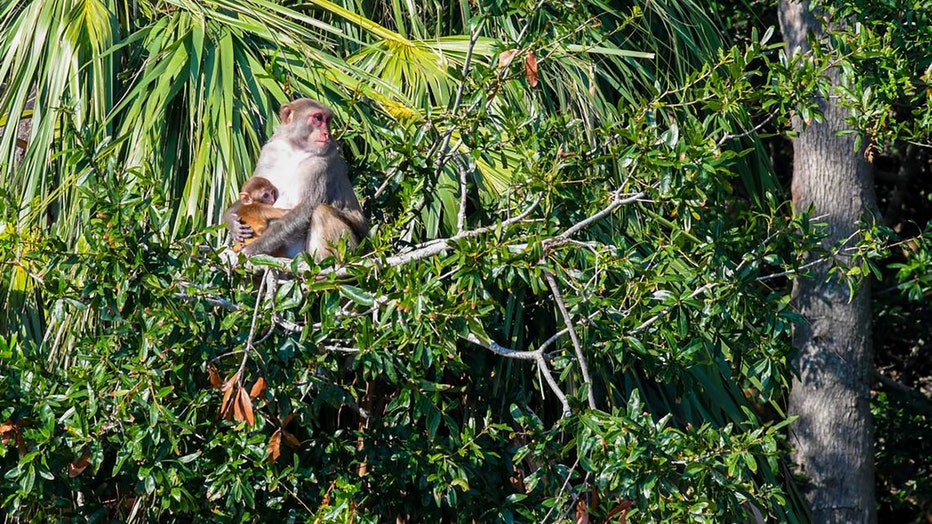Escaped monkeys update: 1 safe, 42 still loose
Monkeys spotted in wooded area in South Carolina after escaping research facility
Several monkeys on the loose were captured on video after dozens of them escaped a research facility in Yemassee, South Carolina, on Wednesday, Nov. 6. (Daniel Vance via Storyful)
One of the 43 monkeys that escaped from a South Carolina lab earlier this week has been recovered safely, police officials said Saturday.
Many of the other monkeys are still located a few yards from the property, jumping back and forth over the facility’s fence, the Yemassee Police Department said in a statement that was released on social media.
The monkeys escaped Wednesday when an employee at the Alpha Genesis facility didn’t fully lock a door as she fed and checked on them, officials said.

FILE - An infant rhesus macaque is held by an adult as photographed on Sept. 20, 2024, on Morgan Island, in Beaufort County, South Carolina. The island and its 3,000 monkeys are managed by Yemassees Alpha Genesis for the National Institutes of Health
The facility, located about 50 miles northeast of Savannah, Georgia, breeds the monkeys to sell to medical and other researchers worldwide.
On Friday, the monkeys were said to be exploring the outer fence of the facility and cooing at the monkeys inside. The primates continued to interact with their companions inside the facility on Saturday, which is a positive sign, the police statement said.
Officials have said the monkeys pose no health risks to the public, but warned against approaching or interacting with them.
RELATED: Escaped monkeys update: They're ‘having an adventure’
What kind of monkeys escaped in South Carolina?
The 43 monkeys that escaped a South Carolina lab on Nov. 6, 2024, are Rhesus macaques, also known as Rhesus monkeys.
The monkeys are about the size of a cat. They are all females weighing about 7 pounds.
Rhesus monkey
National Geographic describes the medium-sized Rhesus monkeys as "extremely adaptable" and clever.
They are native to 11 Asian countries and can live in captivity for between 20 to 40 years.
They range in color from pale brown to auburn, with intertwined streaks of gray hair.
The Source: Information in this article was used from the Yemassee Police Department, which posted various press releases on the matter on social media. INformation about the monkeys was taken from National Geographic. This story was reported from Detroit.

